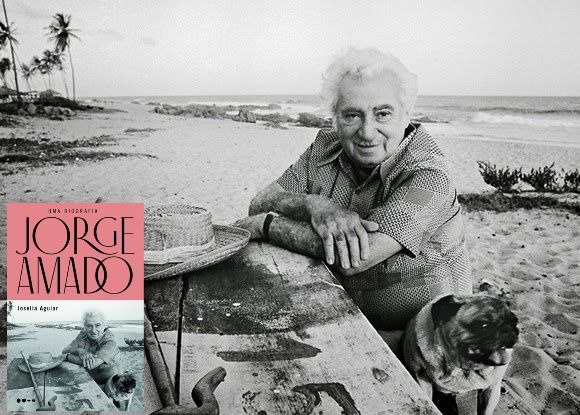He wrote the epic of the poor: Who is Jorge Amado?
He grew up on a cocoa plantation and studied at a Jesuit school in Salvador. In his first three works about cocoa plantations, he reflected on the exploitation and misery experienced by immigrant blacks, mulattoes, and poor whites.

Jorge Amado (10 August 1912, Pirangi, Bahia – 6 August 2001) was a Brazilian novelist.
He initially wrote socially satirical novels about life in Bahia during the era of cocoa agribusiness owners. He later gained fame with his novels such as Dona Flor e Seus Dois Maridos (1966), which he wrote in a lyrical, thoughtful, and humorous style. Amado died in Salvador, Brazil, in 2001.
Who is Jorge Amado?
He was born in Brazil in 1912. He grew up on a cocoa plantation and studied at a Jesuit school in Salvador. In his first three works about cocoa plantations, he reflected on the exploitation and misery experienced by immigrant blacks, mulattoes, and poor whites.
Angry Earth (1942), which carries the primitive splendor of folk epics, was the best of these works. Amado, who started journalism in 1930, was directly interested in radical politics as well as literature. He was arrested in 1935 and frequently exiled from the country for his political activities; Many of his works were banned in Brazil and Portugal.
Jorge Amado (10 August 1912 – 6 August 2001) was a Brazilian writer of the modernist school. He remains the best-known of modern Brazilian writers, with his work having been translated into some 49 languages and popularized in film, including Dona Flor and Her Two Husbands in 1976. His work reflects the image of a Mestiço Brazil and is marked by religious syncretism. He depicted a cheerful and optimistic country that was beset, at the same time, with deep social and economic differences.
In 1946, he was elected to the Constituent Assembly as a deputy of the Brazilian Communist Party. In his novels, he mostly depicted urban life in Bahia, especially the poor classes consisting of various ethnic groups.
The satire in his works The Girl with the Scent of Cinnamon (1958) and Dona Flor and Her Two Husbands (1966) reveals Amado's political attitude. His other important works include A Shop of Miracles, Endless Lands, Shepherds of the Night, Dead Sea and Tereza Batista. Amado died in Salvador, Brazil, in 2001.
Jorge Amado, who started writing as if he were a mature - almost old - writer in his adolescence, later began to become younger again with exquisite stories such as Doña Flor and Her Two Husbands, The Girl with the Scent of Cinnamon, Tereza Batista and the War Weary, Tieta do Agreste, Farda Fardao Camisola de Dormir.
The extraordinary success of his books in reaching readers from countless different cultures can be attributed to the good workmanship seen in his weaving of stories, the colorful and entertaining dialogues, the elegance in his portrayal of people, and the knotting and unraveling of the arguments.
We come across a "healthy" view of life such as that spread through the works of Jorge Amado in very few modern writers. In general (I believe that there are very few people who remain outside this trend) the talent of the great creators of our time is primarily to witness the tragic fate of man, and to discover the terrible abysses into which he can fall.
When I was young, we used to play a game with a friend saying, if there is a heaven, which writer of our time could get into it? We had a very specific list that we had mischievously created, and the worst part was that qualified people would sooner or later exhibit behavior that would require us to expel them from heaven.
After many years, there is only one name left on my list today. I can assure you that among the people in this world who have known and read Jorge Amado, there will not be a single person who would try to exile him from heaven.
